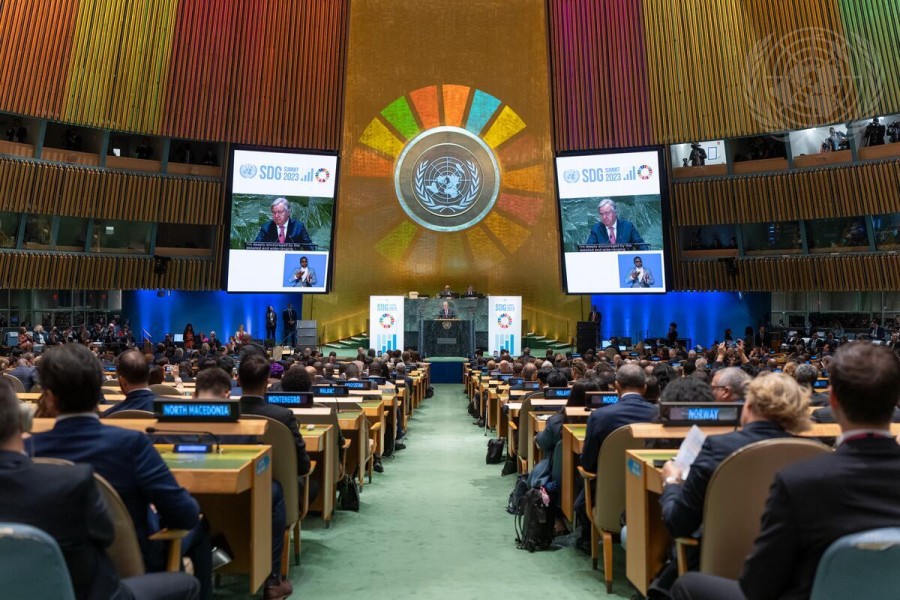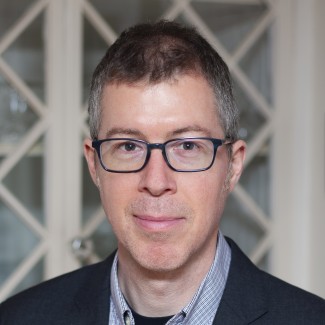On September 18 and 19, world leaders gathered in New York for the UN Sustainable Development Goals Summit (SDG Summit) to take stock of the progress that the global community has made toward achieving the 2030 Sustainable Development Agenda and the challenges it still faces. Described by the UN Secretary-General as “the centerpiece moment of 2023,” this year’s SDG Summit marked the halfway point of the 2030 Agenda.
One outcome of this moment was the adoption by the UN General Assembly of a negotiated political declaration. The declaration asserts that the achievement of the SDGs is “in peril,” describing progress toward them as moving too slowly and even regressing in some countries as a result of multiple, overlapping crises. Among these crises are persistent and intensifying armed conflicts, which cause “untold human suffering.” It also recognizes the specific challenges facing conflict-affected countries, and the need to build peaceful, just, and inclusive societies based on “respect for human rights.”
While this acknowledgment is important, the international community must go further in specifying these obstacles and the role that human rights can play in overcoming them, especially in places where serious and widespread violations have been committed. In these contexts, victims, survivors, and affected communities suffer from harms and losses that diminish their well-being as well as their capacity to improve it, while institutions and structures perpetuate the marginalization and exclusion that makes the recurrence of violence and abuse more likely. These drivers of conflict must be addressed for peaceful, just, and inclusive societies to succeed.
This is the message of the Working Group on Transitional Justice and SDG16+, a group of representatives from civil society, governments, regional actors, and international organizations convened by ICTJ to promote transitional justice in the 2030 Agenda. To coincide with the SDG Summit, the working group released a new report, entitled “Toward Victim-Centered Change: Integrating Transitional Justice into Sustainable Peace and Development.” The report offers guidance to policymakers and stakeholders on designing interventions that address development-related problems such as violence and marginalization in their full complexity and scope, and on galvanizing the support needed to implement those interventions.
The report highlights ways in which responses to violations can be integrated into development—for example, by providing social services, psychosocial support, and livelihood assistance within a reparative framework, and by incorporating truth commission recommendations and victims’ needs into development plans. It also proposes strategies for establishing such victim-centered interventions in practice, urging stakeholders to (1) strengthen collective action among victims’ groups and networks, civil society organizations, and social and political movements; (2) incorporate transitional justice into responses at the local, national, regional, and global levels; and (3) adopt a long-term perspective on monitoring, operationalization, and impact.
The working group’s proposals for a more strategic approach build on international policy that has increasingly recognized the value of transitional justice to sustainable development, including most recently a 2022 UN Human Rights Council resolution and the UN Secretary-General’s 2023 New Vision for the Rule of Law and 2023 New Agenda for Peace. They also complement the forthcoming “Guidance Note of the Secretary-General—Transitional Justice: A Strategic Tool for People, Prevention and Peace.” Working group members will continue to collaborate to move this discussion from policy to practice in the coming months and years, and as the second half of the 2030 Agenda unfolds.
___________
PHOTO: UN Secretary-General António Guterres (at podium and on screens) addresses the opening of the 2023 SDG Summit. (UN Photo/Cia Pak)

